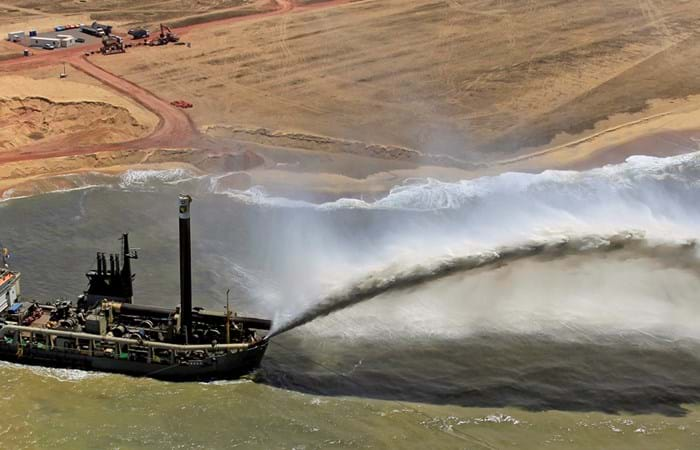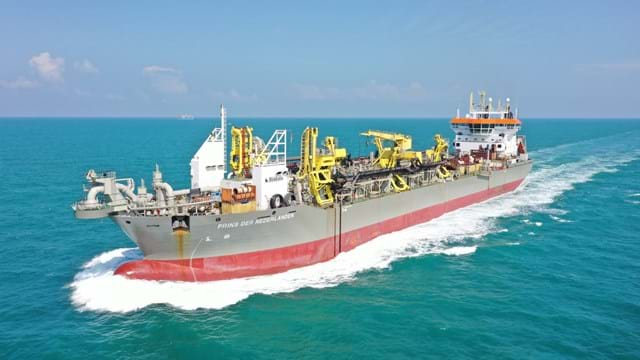Açu Port in São João da Barra, Rio de Janeiro (Brazil) is one of the largest port-industry complex in Latin America. The port consists of two terminals: T1, an offshore terminal for handling iron ore and oil, and T2, an onshore terminal built around the inner navigation channel which accommodates offshore supply companies and will handle bauxite, general cargo and vehicles.
Scope of works
Boskalis was responsible for the following scope of works on the onshore T2 terminal:
- Offshore Access Channel, approximately 4,600m long, 300m wide and 14.5m depth;
- Onshore Access Channel, approximately 2,000m long, 300m wide and 14.5m depth;
- Turning Basin, with 600m diameter and 14.5m depth;
- Inner Channel and mooring berths, approximately 3,600m long, widths ranging from 135m, 210m to 500m and depths ranging from 10/11 to 14.5m.
Boskalis was also responsible for project management, the construction of access roadways, clearance of work sites and the construction of revetments at the entrance to the port. The project developed continuously. During the course of the project the nature, dimensions and technical requirements were adapted in line with the changing requirements of the client and other stakeholders such as the future concessionaries of the Port of Açu. Based on continuous interaction with the client the most efficient, technically optimal and cost-effective solutions were adopted to the full satisfaction of all stakeholders. Boskalis also deepened the access channel and the turning basin of the T1 offshore terminal.

